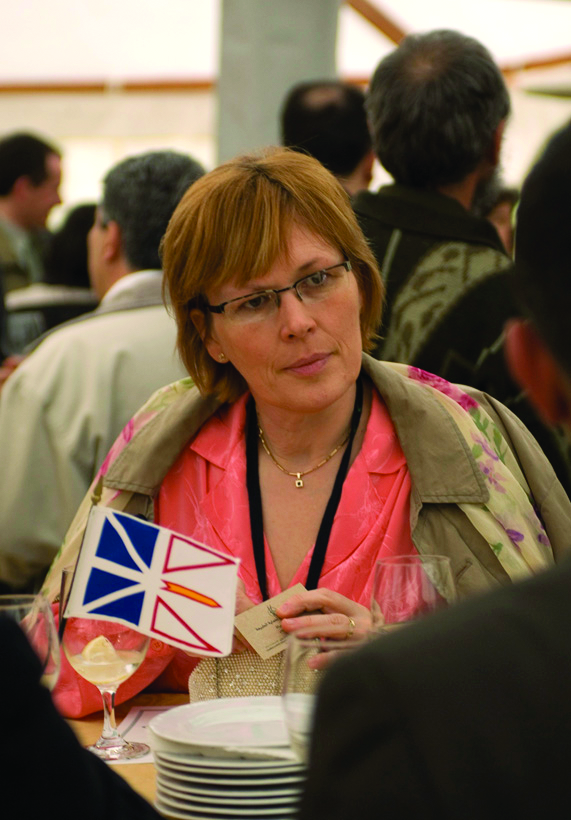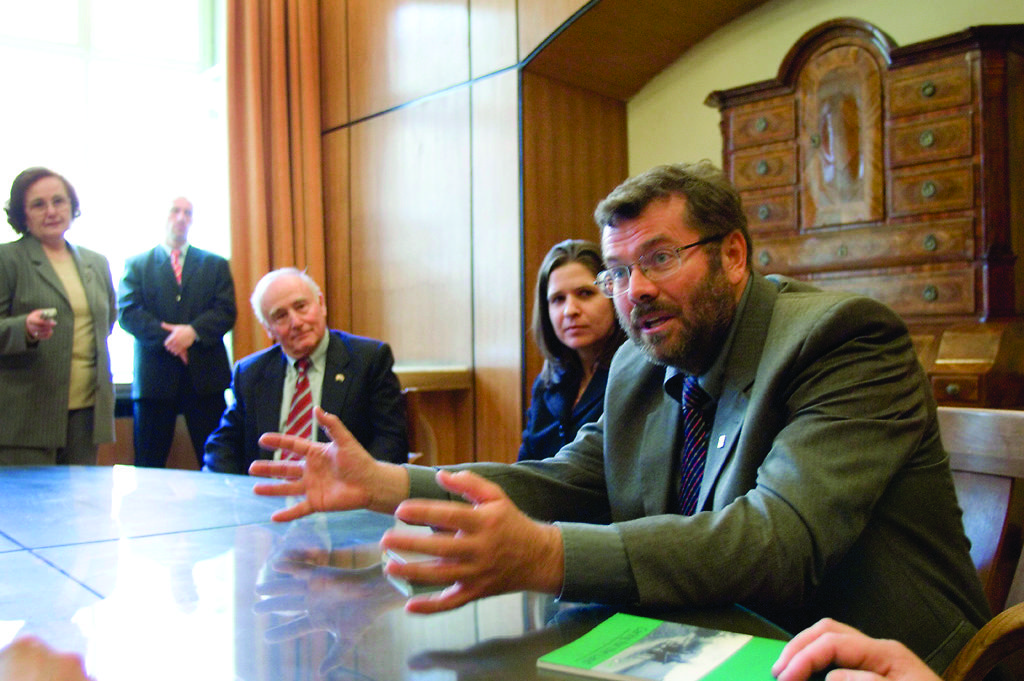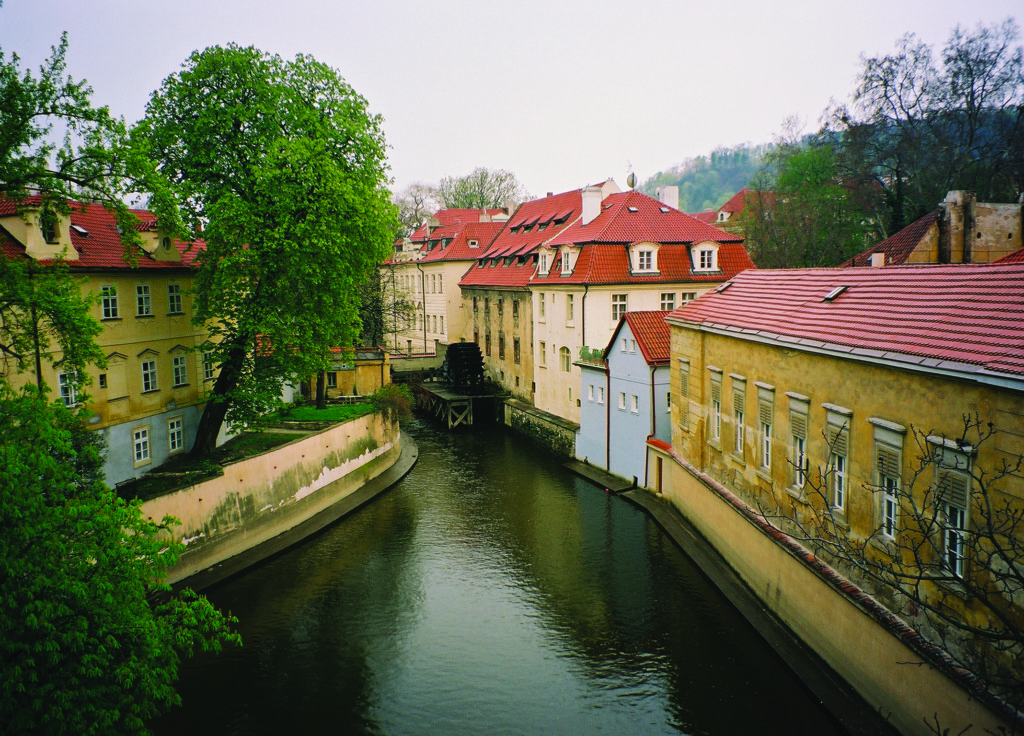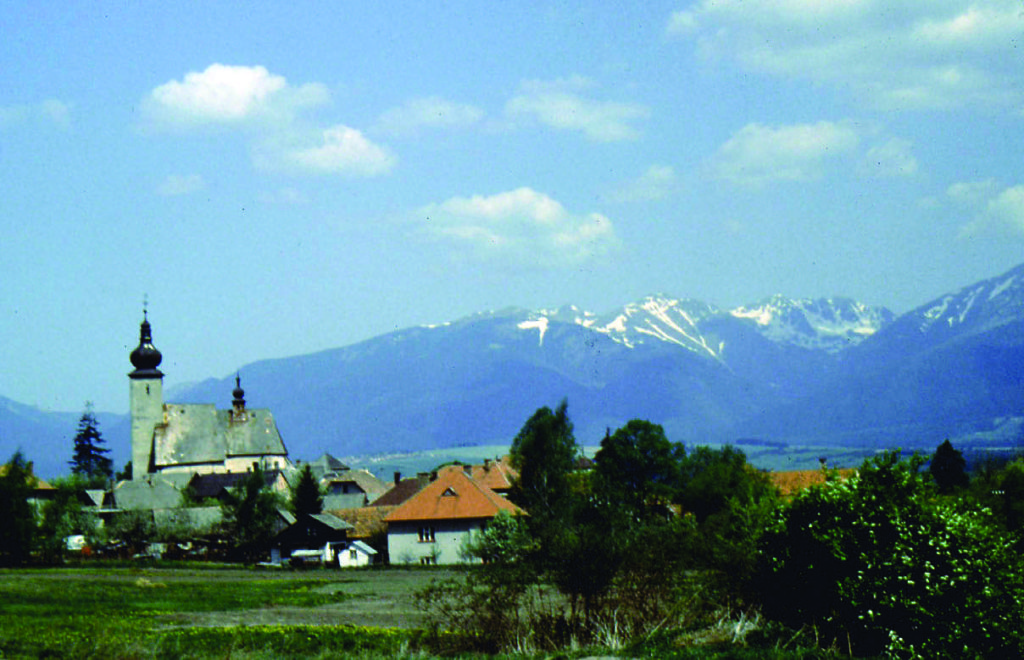The broad goal of QLF’s work in the Visegrád countries is to advance the stewardship approach both in Central Europe and in QLF’s domestic region. Stewardship refers to the essential role that individuals and communities play in the careful management of their natural and cultural heritage, for present and future generations. More specifically, it is defined as efforts to create, nurture and enable responsibility in landowners and resource users to manage and protect land and its natural and cultural heritage. The stewardship approach makes an important contribution to civil society development through its emphasis on civic engagement, participatory approaches to decision-making, and cross-sectoral cooperation in meeting conservation challenges. (To learn more about stewardship and civic engagement, check out “Caring for the Land”).

Blažena Hušková, Czech Republic, Fellow in 2000, at the First Alumni Congress. Photograph by Greig Cranna.
More specific program objectives in the Visegrád countries are to:
- Strengthen the capacity of participating institutions, in particular NGOs and local governments, to conserve natural and cultural heritage;
- Help NGOs work effectively with other sectors and build productive partnerships;
- Support a transfer of innovations among conservation professionals from these regions;
- Help create legal and institutional mechanisms for encouraging stewardship practices;
- Encourage citizen participation in environmental problem-solving; and
- Foster dialogue and cooperation among diverse stakeholders on both sides of the European Union border.

Ferenc Márkus, from Hungary, Fellow in 1994, pictured here at the First Alumni Congress. Photograph by Greig Cranna
To meet these goals, QLF relies on an array of mutually reinforcing methods for training, technical assistance and peer exchange, which have been developed over decades of work in the region. Since the program’s inception, several hundred professionals and local leaders from both sides of the Atlantic have participated in QLF’s Fellowships, workshops, peer exchanges, and community problem-solving exercises, joining a growing cadre of practitioners concerned with stewardship. Among QLF’s Central European Alumni are 25 Slovaks, 32 Czechs, 23 Poles, and 30 Hungarians who have come to the New England region of the United States to participate in QLF’s Fellowship programs.

Prague, Czech Republic. Photograph by Elizabeth Alling
QLF has conducted a number of programs in Central Europe since 1989 to meet its program objectives.
- Fellowship Program on Land Conservation and Stewardship – This intensive four-week fellowship program in New England has brought together Visegrád conservation professionals almost annually since 1992. The Fellowship features an introduction to tools for private land conservation and public-private partnerships for protected area management, as well as methods for encouraging public participation and civic engagement.
- “Tools for Stewardship” Workshops – QLF conducted many of these workshops in the Czech and Slovak Republics, beginning with a 1994 workshop in the White Carpathians that reached over 30 Czech and Slovak conservation leaders. Workshops highlight topics related to stewardship and are designed to help NGO managers increase productivity, focusing on problem-solving and active participation.
- Community Visioning and Participatory Planning – Community visioning is a methodology for involving diverse stakeholders in developing a shared long-term vision for their community’s future. This practice, which relies on a series of town meetings and facilitated exercises, is being used increasingly by New England communities coping with change, and has attracted a good deal of interest in Central Europe.
- Landscape Stewardship Exchanges – This participatory problem-solving workshop brings together a small team of conservation and development practitioners from several countries to advise on a development issue identified by local stakeholders. The model relies on a combination of community organizing at the local level and the outside perspective provided by the international team to stimulate public participation and dialogue among diverse local interests. The Landscape Stewardship Exchange model proved highly effective in fostering dialogue among interest groups and is frequently referred to by local leaders as having been catalytic – a watershed in their community/regional development efforts.
- Women’s Rural Community Leadership Program – Launched in 1999, this program convenes Slovak, Czech and Polish women from rural communities playing a leadership role in conservation and community development. Through traveling seminars, training workshops, and regional strategy meetings, the program has built long-term linkages across borders in Central Europe, as well as transatlantic partnerships. This has resulted in the creation of a regional network of rural women leaders, which serves as the basis for their ongoing cooperation in community projects. QLF is exploring how this network can be broadened to include women from Hungary and other countries of Southeastern Europe.
- Regional Networking –These retreats bring together 20 participants to foster networking among Alumni from Central Europe and cooperation on meeting conservation challenges. To date, QLF has held five Alumni retreats in Central Europe.
- International Stewardship Awards – QLF’s International Stewardship Awards Program recognizes and supports the stewardship work of QLF Alumni in each of QLF’s international target regions. In Central Europe, QLF awards two small grants of $1,500 annually to support conservation projects proposed by QLF Alumni from the region.
QLF’s International Programs in Central Europe continue to evolve. In 2004 QLF expanded the geographic extension of the Central European Stewardship Program to countries of the Balkans, including projects linking Central European conservation professionals with counterparts from Balkan countries.
QLF’s experience in the Visegrád countries has demonstrated the value of stewardship-focused exchange programs in fostering innovative conservation strategies, building effective partnerships and coalitions, and strengthening the capacity of participating institutions. The stewardship approach, with its emphasis on encouraging private initiative and public involvement in land use decisions, has proven highly relevant to emerging strategies for landscape conservation in Central Europe. At the same time, these community-based, participatory approaches to conservation can continue to contribute to building civil society in the region.

Liptov region in the high Tatra mountains of Slovakia, site of a QLF Landscape Stewardship Exchange and home to several alumni. Protected landscapes can serve as models for sustainable development. Photograph by Brent Mitchell
[The Visegrád Group of countries takes its name from a castle on the Danube River where the kings of Hungary, Prussia and Poland met in the 14th century.]
[Banner photograph by Alfred D. Chandler III.]






